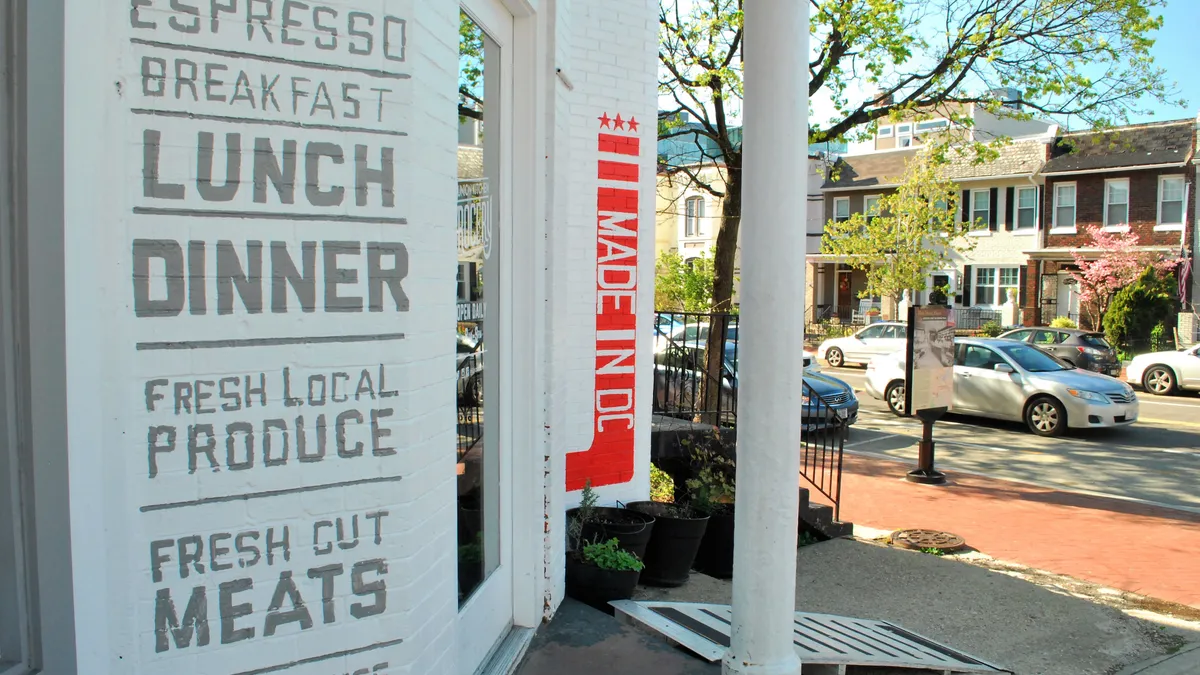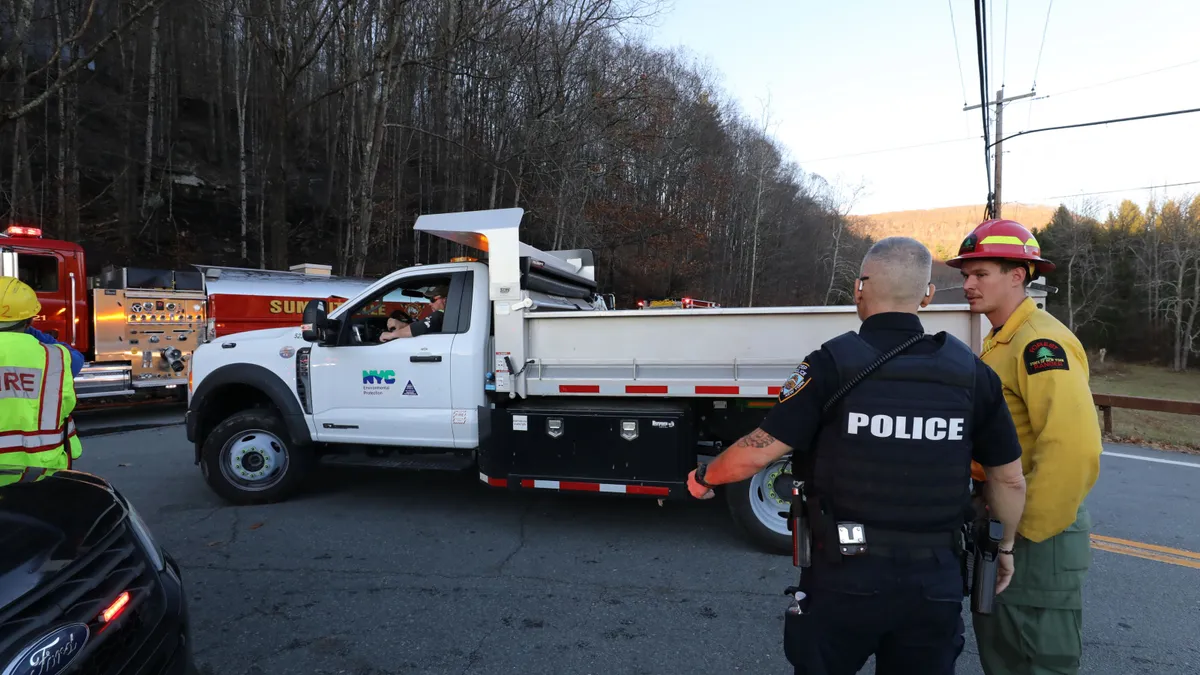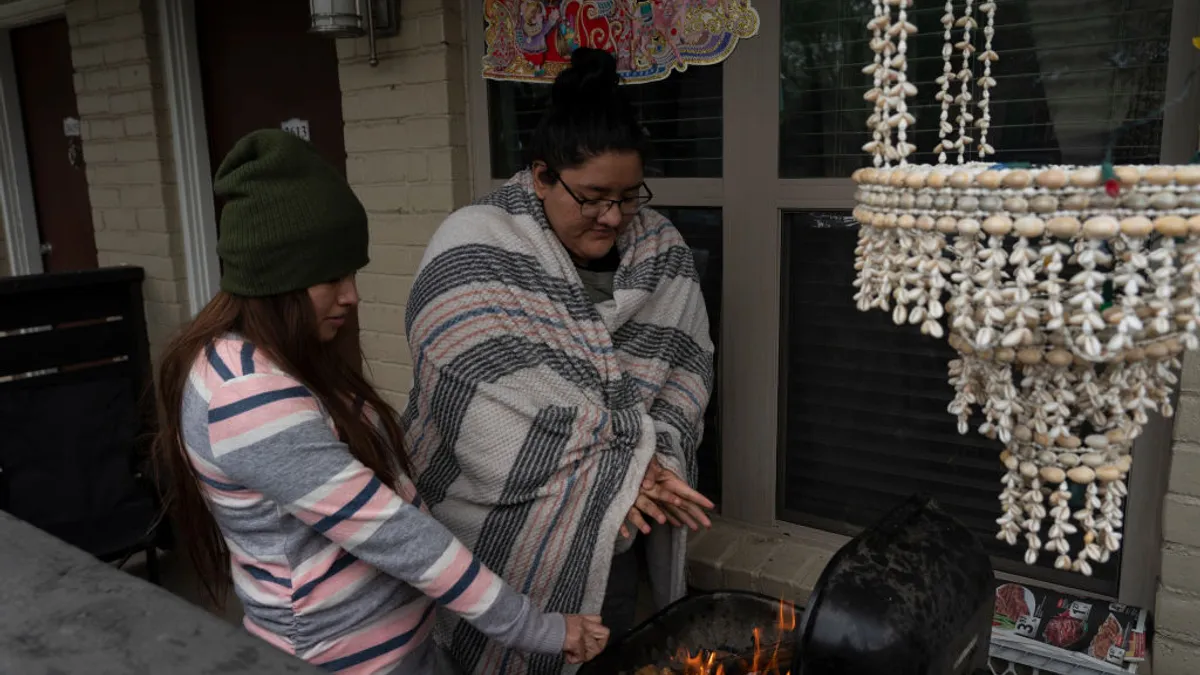Earlier this year, Union Kitchen D.C. opened its second store in the nation’s capital featuring a unique mix of locally sourced, natural, organic, and mainstream products. It’s one of the few places where shoppers can find boxes of Cheerios and cases of Coca-Cola right next to bags of locally sourced Oh-Mazing granola, jars of Sweet Farm Sauerkraut, and bags of D.C.-roasted Compass Coffee.
This eclectic mix of products isn’t what makes Union Kitchen truly unique, though. Before the company expanded into grocery, it was primarily in the business of developing local products. As a food incubator, Union Kitchen works with D.C.-area entrepreneurs who have a great idea for a new food or beverage, but lack access to prep kitchens, packaging equipment, branding expertise and connections with area retailers. Using the company’s industrial-grade facilities and staff experts, small local producers can go from concept to retail-ready within months. Many member products, in fact, wind up on Union Kitchen’s grocery shelves.
As if all this weren’t enough, Union Kitchen is also in the specialty distribution business. Every week, the company distributes more than 500 locally made products — including many that were baked, blended, jarred and bagged in its own facilities — to retailers throughout the D.C area.
So how difficult is it to operate at every stage of food retail? What advantages does a retailer have stocking products that it brought to market? Food Dive recently spoke with Union Kitchen’s co-founder and CEO, Cullen Gilchrist, about this and more.
Food Dive: What does Union Kitchen offer food entrepreneurs that go through its development system?
Gilchrist: We have two kitchens right now that are around 30,000 square feet combined. And we’re using those facilities to lower the barriers to entry, to get business started and to grow. We take care of everything and let the members focus on making and selling food. They don’t have to worry about anything else. We’re in a collaborative environment, and we’re able to leverage the size of all our members combined to get better deals with retailers.
Food Dive: What are you looking for when you take on a member company? Are you looking for any particular product categories right now?
Gilchrist: More than anything, we’re looking for entrepreneurs. We want people that are smart and that are going to hustle and that are coachable. The product matters, but the product is fungible. It’s pivot-able. You might come in wanting to make iced tea, and six months later you’re making something different, and that’s what’s going to help you grow and find success.
So we’re looking for people who are thinking about growth and think about their company as a way to do that, as opposed to people who only want to make one kind of product that may or may not be accepted in the marketplace.
Food Dive: How eager are food and beverage entrepreneurs to enter a program like this? About how many applications do you get in the course of a week?
Gilchrist: The number has definitely gone up. I don’t know exact numbers, but it’s a lot. And we’ve seen that go up over time. And I think the reason is because people are inspired. They see a small company raise $3 million, and they say, ‘Hey, that could be me.’
Food Dive: How long do memberships last? Is there a trial period for new producers?
"More than anything, we’re looking for entrepreneurs. We want people that are smart and that are going to hustle and that are coachable."

Cullen Gilchrist
Co-founder and CEO, Union Kitchen DC
Gilchrist: There’s no typical timeline. We’ve had some members who have been with us all five years we’ve been in business. And the membership goes beyond the kitchen. You can be in another kitchen and still be a part of our community. And that’s what we want to do: build these communities.
Food Dive: Who are the retailers that you’re working with to get these products on their shelves and why are they partnering with Union Kitchen?
Gilchrist: We work with Whole Foods. That’s our largest partner, and we work with a lot of independent and small retailers here in D.C., as well. And I think it’s pretty clear when you go into a grocery store that grocery stores are not good about finding and sourcing and reliably keeping local and interesting new products on their shelves. They end up working with big companies instead. We work with small companies, but we have the mentality of a big company. We’re building infrastructure and following industry guidelines, and we can help retailers by dealing with us rather than a hundred small vendors that each have different ways of doing things. The reason people want to work with us is the same reason retailers want to work with UNFI or with Sysco. We’re just carrying a different sort of product.
Food Dive: How interested are retailers these days in local products and what seems to be driving that interest?
Gilchrist: I think by and large, retailers want what their customers want, and customers want things that relate to them and make sense. The best people at making products that are relatable are your neighbors, or you yourself. If you go in a store, who’s more likely to know what you want? Is it Nestle? Or is it the person down the street who goes to yoga class with you? And I think local products do that. They understand in a regional way what people’s culture is, what their tastes are, what they need more in their lives, and they’re able to fill those gaps really effectively. They’re also able to get to market very quickly.
Food Dive: Why did you decide to open grocery stores in addition to your kitchens and distribution business?
Gilchrist: We wanted a place where people can find these products along with other products that they’re looking for. We want to make it easy for people to engage in the local economy, and we want to be convenient to them. There was certainly a place for us to fill that need.
Food Dive: What advantages would you say Union Kitchen has over other grocers, considering you’ve developed many of the products that are on shelves?
"They [local products] understand in a regional way what people’s culture is, what their tastes are, what they need more in their lives, and they’re able to fill those gaps really effectively. They’re also able to get to market very quickly."

Cullen Gilcrhist
Co-founder and CEO, Union Kitchen DC
Gilchrist: We feel good about being in such close proximity to and having such easy access to all these cool emerging brands. We know all of our brands really, really well. And we’re making it convenient for consumers to put their money where their mouth is. We’re going to be three blocks from where you live. You’re going to come in and buy your Coca-Cola and your coffee, but you’re also going to get to try that cool kombucha that you’ve been looking at but just haven’t gotten a chance to try. We’ve seen some drastic increases in just our sales because we’re bringing everyone in the market into our stores.
Food Dive: Is this something larger grocery stores could do to some extent?
Gilchrist: It’s certainly something they could do if they wanted to. I’m not sure if it’d work for them or not. It’s definitely not something that’s in their model, and it would take ... a departure from what they’re doing. But you can see there’s a shift in interest. Money’s going into local foods, and it’ll be interesting to see whether they partner with someone or try to do it in house.
Food Dive: Are there any product categories that seem to really be performing well?
Gilchrist: People are buying local across all of our categories. But we are seeing a lot of growth around people who want to live healthy lifestyles, whether it’s organic or non-GMO. We want to make it easier for them to find those products.
Food Dive: Do you plan to open more grocery stores in the near future?
Gilchrist: We’re definitely looking to grow right now. We’d like to be able to drop in a number of different neighborhoods here in D.C.
Food Dive: What about your accelerator program? What’s next for that part of the business?
Gilchrist: We’re working with businesses to the point where they’re really invest-able. We’re trying to make companies that can raise a couple million dollars, do a Series A round, or do angel funding. To that end, we’re having a demo day, which we’ll do every six months, where we’ll take a cohort of members and say, 'Hey, these people need money to take the next step, and maybe its $50,000 and maybe it’s $3 million, but we’re going to bring investors to the table who can work across those companies.'




















